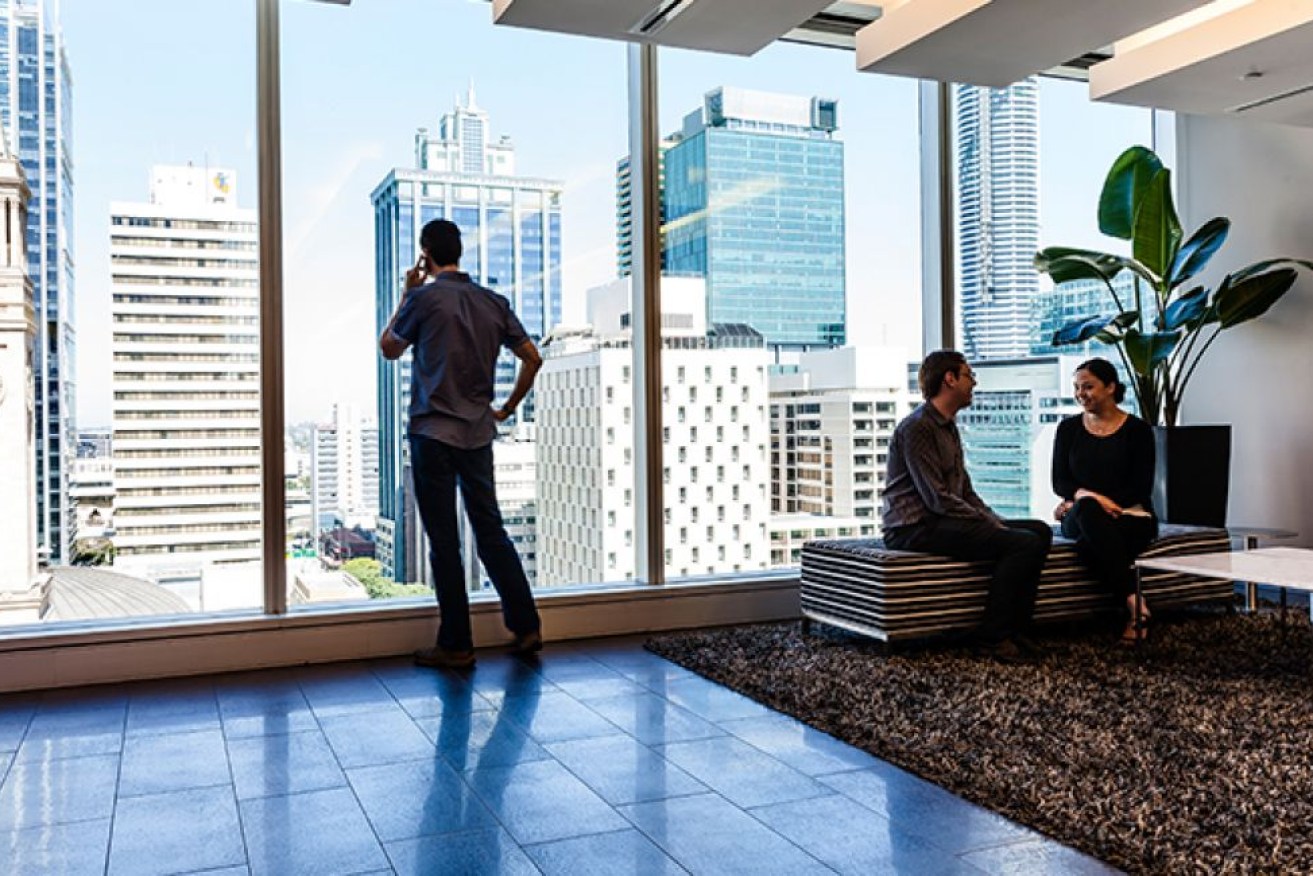Pay up or else: A restless workforce expects big things from employers
A workforce survey has uncovered a growing restlessness among Australia’s workers who are increasingly expecting significant pay rises this year, with about a quarter considering quitting for something new.


Offices were still being hit by work from home
According to the quarterly survey from the NAB, the number of those considering a new job grew significantly in the December quarter.
However, salary was clearly not the only issue because only around half of those who switched jobs over the past year were earning more in their new role.
Stability, flexible hours and purposeful work were also a priority for many, with around one in two labelling them as factors of high importance.
More than a quarter of younger workers, aged 18 to 29, were considering a new job and the number had grown in the December quarter.
The bank said the global trend created by the labour shortage, dubbed “the great resignation”, was continuing because of the rising cost of living. It meant salary was the top focus for jobseekers and men were more likely to ask for a pay rise.
Those workers who did ask for a pay rise were expecting to receive an extra $7600 a year, although women were expecting slightly less than men.
NAB found almost 8 per cent of Australian workers had changed jobs in the three months and one in three in the past two years.
The rates of those considering a change were also higher, with almost a quarter of Australians currently intending to leave their current jobs (24 per cent in Q4 vs 21 per cent in Q3).
“With financial stress rising for many households due to the cost of living, salary shows up as the most important factor in finding a job, with seven out of 10 workers considering it a high priority.
NAB’s group executive for people and culture Susan Ferrier said employers looking to retain talent in these conditions had to be aware of the new challenges facing their workers.
“As we see the pressures of inflation hitting many Australians, I think employee wellbeing will need a very sharp focus. This is a workforce that has just lived through the many challenges of the pandemic,” Ferrier said.
“Understandably salary is a big factor right now, but we also know through this research and a survey of 13,000 NAB employees flexibility is high on the list. Australians are far more thoughtful about work-life balance since the pandemic and it plays a key role in their job satisfaction. A company’s willingness to accommodate employee preferences goes a long way in supporting their loyalty.
“People also need to feel good about the work they are doing, so ensuring employees understand the importance of the work they do is critical.”
The survey also found that not only are men more likely to ask for a pay rise, they’re also more confident in getting one.
When asked if they intend to seek a pay rise over the next 12 months, 36 per cent of men said they would, compared to 25 per cent of women. In the year ahead, around 70 per cent of men expect to get a bigger pay packet, as against 60 per cent of women.
Ferrier said while it was tempting to try and encourage women to be more confident in advocating for themselves, the key is to remove the biases that exist within workplaces.
“It’s not about trying to get women to act more like men. It is about addressing bias and ensuring that our workplaces reward women fairly for the contributions they make,” she said.
“The same goes for promotions and stretch opportunities, just because someone is good at asking and advocating for themself, doesn’t necessarily mean they are the best fit. It’s a great skill to have, but it shouldn’t outweigh experience, capability and leadership qualities.
“Breaking these long-held biases takes deliberate effort, particularly from those in leadership roles, every day. It is critical to getting more women into leadership positions, which is a big factor in helping to close the gender pay gap.”
The utilities sector had the largest number of workers considering leaving (44 per cent versus 16 per cent in Q3), followed by manufacturing and agribusiness (35 per cent), hospitality (33 per cent) and Government (30 per cent).
The confidence in getting a pay rise varied widely by job type. Almost 80 per cent of tradies expected they would get an increase, about double the number in the third quarter.
Around 3 in 4 sales workers and managers were also confident, compared to 1 in 2 of those in unskilled or clerical and admin jobs.
By job type, pay rise expectations are highest among IT ($219) and sales workers ($191), and lowest for clerical & admin workers ($88).












